- Home
- Daniel Defoe
Memoirs of a Cavalier Page 2
Memoirs of a Cavalier Read online
Page 2
PREFACE TO THE FIRST EDITION.
As an evidence that 'tis very probable these Memorials were writtenmany years ago, the persons now concerned in the publication assurethe reader that they have had them in their possession finished, asthey now appear, above twenty years; that they were so long ago foundby great accident, among other valuable papers, in the closet of aneminent public minister, of no less figure than one of King William'ssecretaries of state.
As it is not proper to trace them any farther, so neither is there anyneed to trace them at all, to give reputation to the story related,seeing the actions here mentioned have a sufficient sanction from allthe histories of the times to which they relate, with this addition,that the admirable manner of relating them and the wonderful varietyof incidents with which they are beautified in the course of a privategentleman's story, add such delight in the reading, and give such alustre, as well to the accounts themselves as to the person who wasthe actor, that no story, we believe, extant in the world ever cameabroad with such advantage.
It must naturally give some concern in the reading that the name of aperson of so much gallantry and honour, and so many ways valuableto the world, should be lost to the readers. We assure them no smalllabour has been thrown away upon the inquiry, and all we have beenable to arrive to of discovery in this affair is, that a memorandumwas found with this manuscript, in these words, but not signed by anyname, only the two letters of a name, which gives us no light into thematter, which memoir was as follows:--
_Memorandum_.
"I found this manuscript among my father's writings, and I understandthat he got them as plunder, at, or after, the fight at Worcester,where he served as major of ----'s regiment of horse on the side ofthe Parliament. I.K."
As this has been of no use but to terminate the inquiry after theperson, so, however, it seems most naturally to give an authority tothe original of the work, viz., that it was born of a soldier; andindeed it is through every part related with so soldierly a style, andin the very language of the field, that it seems impossible anythingbut the very person who was present in every action here related,could be the relater of them.
The accounts of battles, the sieges, and the several actions of whichthis work is so full, are all recorded in the histories of thosetimes; such as the great battle of Leipsic, the sacking of Magdeburg,the siege of Nuremburg, the passing the river Lech in Bavaria; suchalso as the battle of Kineton, or Edgehill, the battles of Newbury,Marston Moor, and Naseby, and the like: they are all, we say, recordedin other histories, and written by those who lived in those times, andperhaps had good authority for what they wrote. But do those relationsgive any of the beautiful ideas of things formed in this account?Have they one half of the circumstances and incidents of the actionsthemselves that this man's eyes were witness to, and which his memoryhas thus preserved? He that has read the best accounts of thosebattles will be surprised to see the particulars of the story sopreserved, so nicely and so agreeably described, and will confesswhat we allege, that the story is inimitably told; and even the greatactions of the glorious King GUSTAVUS ADOLPHUS receive a lustrefrom this man's relations which the world was never made sensible ofbefore, and which the present age has much wanted of late, in order togive their affections a turn in favour of his late glorious successor.
In the story of our own country's unnatural wars, he carries on thesame spirit. How effectually does he record the virtues and gloriousactions of King Charles the First, at the same time that he frequentlyenters upon the mistakes of his Majesty's conduct, and of his friends,which gave his enemies all those fatal advantages against him, whichended in the overthrow of his armies, the loss of his crown and life,and the ruin of the constitution!
In all his accounts he does justice to his enemies, and honoursthe merit of those whose cause he fought against; and many accountsrecorded in his story, are not to be found even in the best historiesof those times.
What applause does he give to gallantry of Sir Thomas Fairfax, to hismodesty, to his conduct, under which he himself was subdued, and tothe justice he did the king's troops when they laid down their arms!
His description of the Scots troops in the beginning of the war, andthe behaviour of the party under the Earl of Holland, who went overagainst them, are admirable; and his censure of their conduct, whopushed the king upon the quarrel, and then would not let him fight, isno more than what many of the king's friends (though less knowing assoldiers) have often complained of.
In a word, this work is a confutation of many errors in all thewriters upon the subject of our wars in England, and even in thatextraordinary history written by the Earl of Clarendon; but theeditors were so just that when, near twenty years ago, a personwho had written a whole volume in folio, by way of answer to andconfutation of Clarendon's "History of the Rebellion," would haveborrowed the clauses in this account, which clash with that history,and confront it,--we say the editors were so just as to refuse them.
There can be nothing objected against the general credit of this work,seeing its truth is established upon universal history; and almost allthe facts, especially those of moment, are confirmed for their generalpart by all the writers of those times. If they are here embellishedwith particulars, which are nowhere else to be found, that is thebeauty we boast of; and that it is that much recommend this work toall the men of sense and judgment that read it.
The only objection we find possible to make against this work is, thatit is not carried on farther, or, as we may say finished, with thefinishing the war of the time; and this we complain of also. But thenwe complain of it as a misfortune to the world, not as a fault in theauthor; for how do we know but that this author might carry it on, andhave another part finished which might not fall into the same hands,or may still remain with some of his family, and which they cannotindeed publish, to make it seem anything perfect, for want of theother parts which we have, and which we have now made public? Nor isit very improbable but that if any such farther part is in being, thepublishing these two parts may occasion the proprietors of the thirdto let the world see it, and that by such a discovery the name of theperson may also come to be known, which would, no doubt, be a greatsatisfaction to the reader as well as us.
This, however, must be said, that if the same author should havewritten another part of this work, and carried it on to the end ofthose times, yet as the residue of those melancholy days, to theRestoration, were filled with the intrigues of government, thepolitical management of illegal power, and the dissensions andfactions of a people who were then even in themselves but a faction,and that there was very little action in the field, it is more thanprobable that our author, who was a man of arms, had little share inthose things, and might not care to trouble himself with looking atthem.
But besides all this, it might happen that he might go abroad againat that time, as most of the gentlemen of quality, and who had anabhorrence for the power that then governed here, did. Nor are wecertain that he might live to the end of that time, so we can giveno account whether he had any share in the subsequent actions of thattime.
'Tis enough that we have the authorities above to recommend this partto us that is now published. The relation, we are persuaded, willrecommend itself, and nothing more can be needful, because nothingmore can invite than the story itself, which, when the reader entersinto, he will find it very hard to get out of till he has gone throughit.

 Captain Singleton
Captain Singleton An Essay Upon Projects
An Essay Upon Projects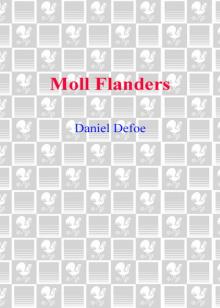 Moll Flanders Moll Flanders Moll Flanders
Moll Flanders Moll Flanders Moll Flanders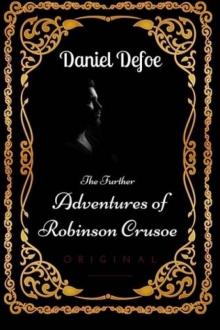 The Further Adventures of Robinson Crusoe
The Further Adventures of Robinson Crusoe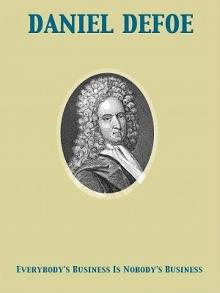 Everybody's Business Is Nobody's Business
Everybody's Business Is Nobody's Business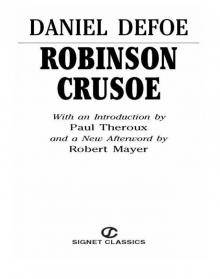 Robinson Crusoe
Robinson Crusoe The Storm
The Storm The King of Pirates
The King of Pirates History of the Plague in London
History of the Plague in London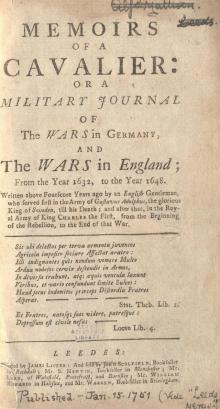 Memoirs of a Cavalier
Memoirs of a Cavalier_preview.jpg) The Life and Most Surprising Adventures of Robinson Crusoe, of York, Mariner (1801)
The Life and Most Surprising Adventures of Robinson Crusoe, of York, Mariner (1801)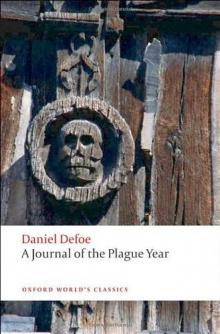 A Journal of the Plague Year
A Journal of the Plague Year_preview.jpg) The Life and Adventures of Robinson Crusoe (1808)
The Life and Adventures of Robinson Crusoe (1808)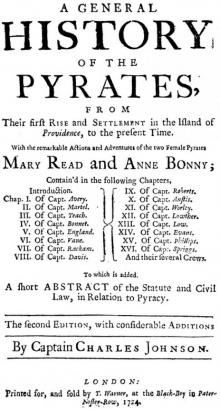 A General History of the Pyrates: / from their first rise and settlement in the island of Providence, to the present time
A General History of the Pyrates: / from their first rise and settlement in the island of Providence, to the present time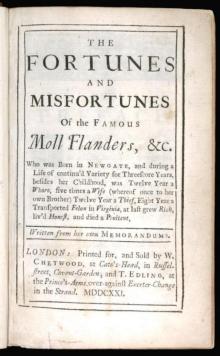 The Fortunes and Misfortunes of the Famous Moll Flanders
The Fortunes and Misfortunes of the Famous Moll Flanders_preview.jpg) The Fortunate Mistress (Parts 1 and 2)
The Fortunate Mistress (Parts 1 and 2)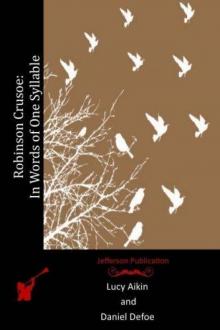 Robinson Crusoe — in Words of One Syllable
Robinson Crusoe — in Words of One Syllable From London to Land's End
From London to Land's End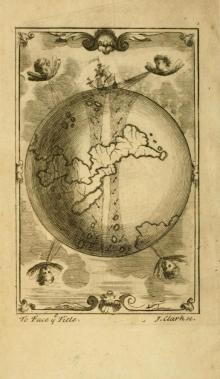 A New Voyage Round the World by a Course Never Sailed Before
A New Voyage Round the World by a Course Never Sailed Before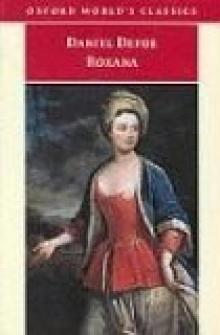 Roxana
Roxana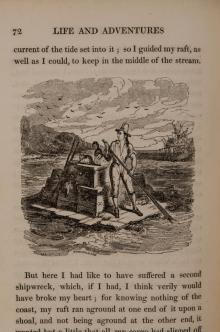 The Life and Adventures of Robinson Crusoe of York, Mariner, Volume 1
The Life and Adventures of Robinson Crusoe of York, Mariner, Volume 1_preview.jpg) Memoirs of Major Alexander Ramkins (1718)
Memoirs of Major Alexander Ramkins (1718) Dickory Cronke
Dickory Cronke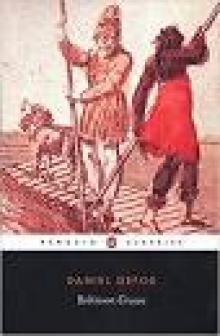 Robinson Crusoe (Penguin ed.)
Robinson Crusoe (Penguin ed.)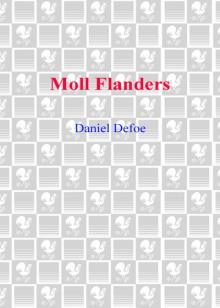 Moll Flanders
Moll Flanders The Further Adventures of Robinson Crusoe rc-2
The Further Adventures of Robinson Crusoe rc-2